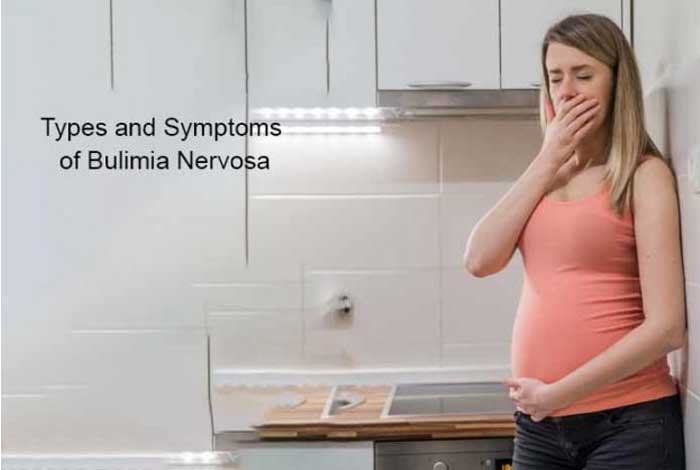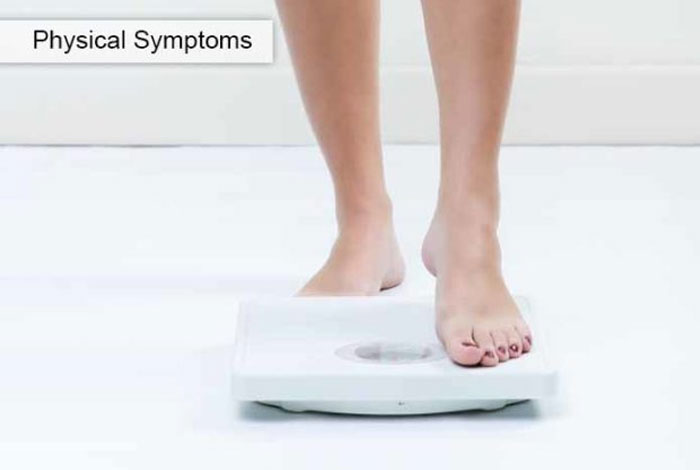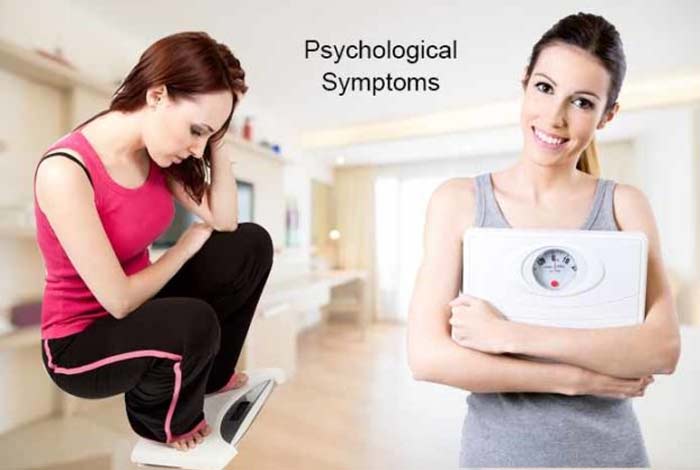
Overview and Facts:
Eating disorders are a serious behavioral problem that is plaguing a lot of people these days. This disorder is more prevalent in young females who are very conscious about their weight as well as their body shape. These eating disorders can include serious overeating (bulimia) or extreme fasting (anorexia) which are both detrimental to the well -being of a person. Bulimia Nervosa, or just Bulimia, is a psychological disorder that leads to binge or extensive eating in humans. This disorder isn’t only limited to over-eating, but can sometimes be life-threatening.
Physical symptoms of bulimia include weight fluctuations, i.e., gain or loss of weight, tiredness and improper sleeping cycles. Psychologically this disorder can generate feelings of shame, disgust, and guilt in a person.
A person suffering from bulimia nervosa generally consumes an oddly large amount of food in short intervals of time, and later, purges out the food in order to avoid unwanted weight gain. They use unhealthy ways, such as vomiting, laxatives or extensive exercise to lose the excess calories that they have gained during binge eating. Moreover, a person suffering from Bulimia might even purge out food that has been taken in a limited amount.
Types and Symptoms of Bulimia Nervosa:

Types of Bulimia Nervosa:
Bulimia nervosa is divided into two types on the basis of how people with the disease deal with the excess calories that they get from their binge eating. These are:
- Purging Bulimia:
Purging Bulimia is the most common form of this disorder. People with purging bulimia get rid of the excess calories by inducing vomiting or by abusing their body with dietary supplements or drugs like laxatives, diuretics and enema.
- Non-Purging Bulimia:

People suffering from this form of bulimia use methods, such as fasting and extensive workout to get rid of extra calories consumed through binge eating. Common purging methods like vomiting and drug abuses are generally avoided by people with non-purging bulimia.
Symptoms of Bulimia Nervosa:

Knowing the symptoms of bulimia might help in the detection of the disease and can help in the early treatment of this psychological disorder. Symptoms of bulimia are divided into three major categories, i.e. physical, behavioral and psychological. Some of the common signs of bulimia are listed below:
1. Physical Symptoms:

- Weight fluctuations (gain or loss).
- Swelling of jaws or cheeks, callus formation on knuckles, bad breath and teeth damage caused by vomiting.
- Feeling constipated, bloated or avoiding the food.
- Improper and disturbed menstrual cycle in girls and women.
- Tiredness and improper sleep cycle.
2. Behavioral Symptoms:

- Extensive or binge eating
- Vomiting or abuse of drugs/dietary supplements like enemas, laxatives, diuretics or appetite suppressants.
- Eating alone and anti-social behavior.
- Regularly weighing the body or repetitive staring in the mirror; indicating obsession towards body weight and shape.
- Secretive behavior, i.e. lying about eating or hiding the food in order to avoid consumption.
- Extensively hard workouts and exercise even in the least favorable conditions, such as injury, sickness and bad weather. Feeling irritated and disappointed when not able to exercise.
- Desperation for dieting, i.e., over-fasting and avoiding all the carbohydrates- and fat-containing foods.
- Frequent use of the bathroom while eating or sooner or after food consumption which might evident vomiting or use of laxatives.
- Erratic behavior.
- Self-harm or suicide attempts.
3. Psychological Symptoms:

- Sensitivity to weight, exercise or body shape-related remarks.
- Feeling of shame or guilt or lowering of self-esteem after eating.
- Dissatisfaction with body shape and having a false sense of body image.
- Irritability, depression & anxiety.
Do I have Bulimia Nervosa?
If you observe the symptoms such as extensive uncontrolled eating episodes after which you feel shame and guilt and prefer social isolation or have any other symptoms like anxiety and depression, then there are chances you may have Bulimia. Bulimia like any other eating disorder is always associated with lots of different psychological issues and these issues need to be identified and treated in order to treat this disorder. So meeting a psychiatrist is the best way to rule out if you are suffering from this disorder.
Risk Factors for Bulimia Nervosa:
There are several factors that might increase the chances of developing Bulimia Nervosa:
- Age Factor: Probability of getting bulimia is generally higher during early adulthood and late teens.
- Gender: Being female increases the risk of bulimia, i.e., girls and women are more prone to develop this psychological disorder as compared to men.
- Genetic Inheritance: Having parents or any other first-degree relatives, who have Bulimia eating disorder, increases the chances of the occurrence of this condition in the next generation.
- Emotional and Psychological Issues: Psychological issues, such as anxiety, depression, self-esteem-related issues that affect the emotions and mental health of a person might trigger the development of bulimia.
- Societal Pressure and Norms of Media: Body image beliefs created by society and media creating a negative body image in the minds of people can affect the mental condition of a person and may cause bulimia.
Causes and Prevention of Bulimia Nervosa:
1. Causes of Bulimia Nervosa:
No specific cause of bulimia nervosa has been discovered yet. However, it is believed that various factors, such as environmental, genetic, psychological and cultural are responsible for this psychological eating disorder. Some of the possible causes of bulimia are:
- Stressful changes in life
- Abusive and traumatic past
- Body shaming and self-esteem issues
- Appearance or performance-focused professions
2. Prevention of Bulimia Nervosa:
There is no specific prevention plan for bulimia nervosa. Nevertheless, early detection and psychological treatment along with medication can help in the prevention of long-term health problems caused by bulimia nervosa.
Diagnosis and Tests for Bulimia Nervosa:
Diagnosis of Bulimia Nervosa requires a keen observation of its characteristic symptoms. There could be various symptoms that might indicate that a person is suffering from this problem.
Unfortunately, self-diagnosis is quite complicated as it is difficult for people with the problem to accept that they actually have this problem. They often consider it as some problem with their digestive system. But, observing some behavioral and physical changes in a person can be helpful in diagnosing this disorder.
Bulimia related behavioral changes may include anti-social behavior and eating alone, uncontrollable eating, and several trips to the restroom while eating (which indicates that they might be purging out food). Moreover, physical changes like weight fluctuations are also the signs of the problem.
Nevertheless, proper diagnosis of bulimia is possible, but only when done by a mental health professional, as some of the symptoms of bulimia are similar to other eating disorders.
Treatment and Care of Bulimia Nervosa:
Bulimia nervosa can be treated with psychotherapy and antidepressant medication. Its treatment involves support from family, doctors, mental health providers and professional dietitians. Below is a list of in-detail treatment for bulimia:
1. Psychotherapy:
Psychotherapy involves psychologists who provide talk therapy by discussing bulimia and related topics such as weight issues and depression. Psychotherapy includes-
- Cognitive Behavioral Therapy (CBT): It helps in identification of negative and unhealthy beliefs or behaviors and modifies them to become positive and healthy.
- Family-Based Therapy: This involves direct support from family to help the person suffering from bulimia nervosa in controlling the unhealthy eating habits and other psychological issues. Furthermore, it also helps the family in dealing with the problems caused by bulimia to the family.
- Interpersonal Psychotherapy: It helps by improving the patient’s problem handling skills and communication and addresses the difficulties in close relationships.
2. Medication:
Antidepressant medications along with psychotherapy help in dealing with the symptoms of bulimia nervosa. The only antidepressant approved by FDA for the treatment this disorder is Prozac (fluoxetine), which is a serotonin reuptake inhibitor (SSRI). This medicine is helpful even in cases where the person isn’t depressed.
3. Nutrition Education:

Health care providers and dietitians can prepare healthy eating schedules that help to treat a person suffering from bulimia nervosa. Educating people about healthy eating habits and diets can help prevent bulimia.
OTC Medication and Self-Management Methods for Bulimia Nervosa:

Any over-the-counter medication for the treatment of Bulimia is not advised as there are chances that it may worsen the situation by affecting the mental health. Any kind of medication should only be taken if prescribed by a professional medical expert.
Self-Management of Bulimia Nervosa:
There are many ways of treating Bulimia that include natural treatments and psychological treatments provided by mental health experts. In addition, self-management is required for the timely recovery of the problem. A health professional can provide diet plans or health tips like yoga, meditation and exercise for faster recovery.
Nevertheless, effectiveness of the suggested treatment depends on the patients themselves to a greater extent. Realizing the problem and importance of the treatment is necessary for recovery. Moreover, treatment adherence and taking advice from the doctor or psychiatrist can help cure bulimia at a better pace.
Following the guidelines provided by the health professional and following a healthy life routine with strong determination can help a patient to get rid of the problem as soon as possible.
Natural Ways of Treating Bulimia Nervosa:

Bulimia nervosa in spite of being a psychological disorder can be treated naturally. There are various methods that can help in the natural treatment of bulimia:
- Yoga and Meditation: One of the best natural treatments for the disorder is yoga and meditation. Yoga helps a person in establishing control over their mind and body. It also helps in reducing the mental stress and regulating emotional imbalances. Similarly, meditation helps in providing you mental peace and thus, helps treat patients with bulimia.
- Balanced Nutrition: Following a balanced diet plan, which includes foods like aloe vera, probiotics, ginseng, oranges, spinach can help balance the calorific and nutritional needs of the body, and help you lead a healthy lifestyle.
- Self-Emotional Care: One of the possible reasons behind bulimia in youngsters is low self-esteem and body image issues. Caring about oneself and respecting one’s own body might be helpful in the treatment of bulimia.
Health Tip by Expert:

“For sufferers with bulimia, there is often relief in disclosing the symptoms to an empathic and experienced professional. A good outcome is often linked with being in a non-judgmental, supportive relationship.”
– Eric Johnson Sabine, Eating Disorders Consultant Psychiatrist, St Ann’s Hospital, North London.




